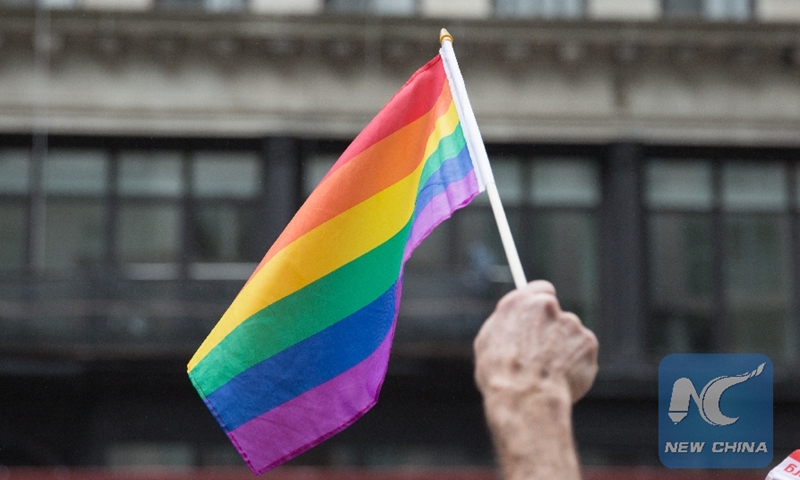China’s court rejected case of seeking to correct Chinese textbook describing homosexuality as ‘mental disorder’

File photo:Xinhua
The lawsuit was filed in 2017 by Xixi (pseudonym), a 24-year-old young woman who at the time was studying at a university in South China's Guangdong Province. She told the Global Times on Thursday that the case started one year ago before a textbook for a class she was taking at the university and that the teacher of the class was one of the book's editors.
Chinese News site The Paper reported on Thursday that the textbook Mental Health Education for College Students describes homosexuality as a kind of "psychosexual disorder" with the explanation that it is "a sexual disorder or an inversion of a sexual object."
Xixi said she felt the content was wrong since it was published in 2013 and the official classification and diagnostic criteria of mental disorders in China published in April 2001 had removed homosexuality from the list of mental disorders.
Xixi said that she tried to talk with the editors and Jianan University Press, the publisher of the textbook, but she did not get a satisfactory response. "So I decided to sue the publisher as they could not evade the problem and would have to talk to me in court," Xixi said.
In 2017, Xixi filed a lawsuit against the publisher asking it to issue a public apology, and retrieve, correct, and reprint the textbooks involved in the case.
However, it was only until June 28, 2020 that the case was heard by the court, which rejected the lawsuit on the grounds that the evidence provided by Xixi was not relevant to the case. According to the court's judgment, the plaintiff's claim and the relevant expressions in the books involved in the case were a matter of cognitive differences between the two parties and not an "intellectual error" in editing or a textual error.
Xixi filed an appeal soon after. On Monday, Xixi and her lawyer Ge Ang received a second judgment from the courts saying that it rejected the appeal and was upholding the original judgment.
They just got written judgment from the court at the second instance. Ge considered that the court did not give enough evidences and reasons of the judgment.
"I think one possible reason that the court did not judge in curia is they saw the social impact of the case at the first instance."
Guo Xiaofei, a teacher at the China University of Political Science and Law who specializes in the study of gay rights, told the Global Times that the court should have said that the content in the textbook does not constitute a "textual error" instead of using the confusing expression "intellectual error," because the content expressed in textbook is a factual error.
"The description in the text originated from a construction of psychiatry and psychology in the West. However, Western countries today have already corrected some of these mistakes, while the editors of the textbooks did not update these changes," Guo criticized.
However, Guo noted that "the court may not have the right to judge whether the academic viewpoint itself is right or wrong. And in my opinion, professional errors in teaching materials should be corrected by professional associations or professional criticism among scholars."
Although she lost the lawsuit, Xixi said that it allowed her to see how Chinese society's perception of the LGBT community has developed. She said she believes the public has a better understanding of the community and "we didn't need to explain to most netizens why LGBT is not a mental issue, which demonstrates that they know this."



